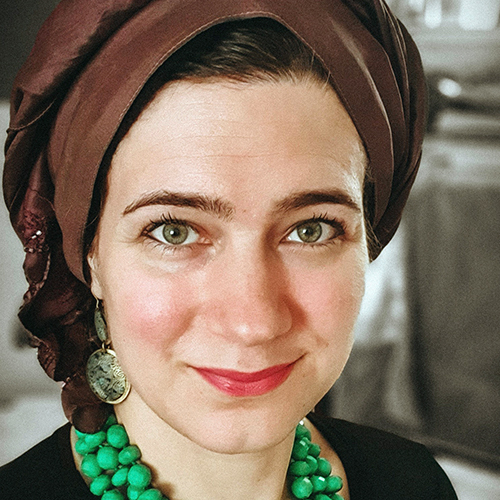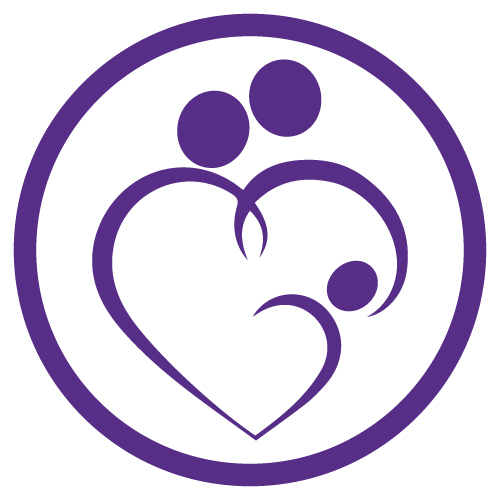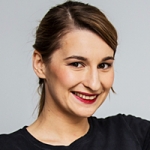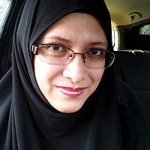 Lactation & Breastfeeding Online Course(s) & Continuing Education
Lactation & Breastfeeding Online Course(s) & Continuing Education
Access the latest clinical skills and research for Lactation & Breastfeeding for professional training. These Lactation & Breastfeeding online courses provide practice-changing skills and valuable perspectives from leading global experts. This Lactation & Breastfeeding education has been accredited for a variety of CEUs / CERPs and can be accessed on-demand, at your own pace.
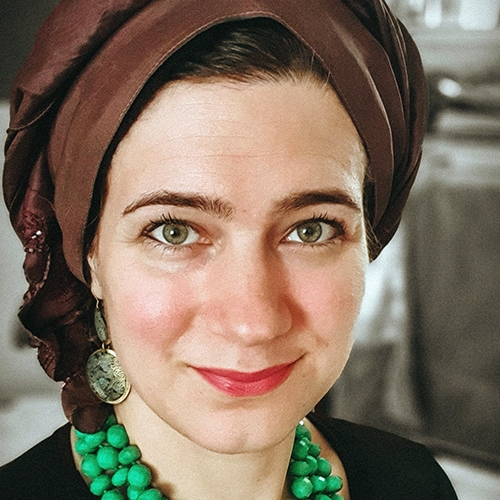
Research Ethics & Infant Feeding: How to Utilise the Four 'D's of a Brief Assessment

Zainab Yate is a Biomedical Ethicist, with a specialist interest in infant feeding. Zainab is Vice Chair and named qualitative lead on a paediatric flagged Research Ethics Committee Panel for the Health Research Authority (HRA) in the UK, reviewing research protocols for over a decade. Zainab's previous working background is in Public Health and Commissioning the National Health Service (NHS) in the UK. She had also been a volunteer breastfeeding peer supporter with the NHS for a number of years, is the owner-author of the resource site for mothers and healthcare practitioners on Breastfeeding / Nursing Aversion and Agitation and author of "When Breastfeeding Sucks".
Topic: Breastfeeding / Nursing Aversion and Agitation (BAA) in breastfeeding mothers - [View Abstract]
Topic: Navigating the Future: Bioethical Challenges in Anticipated Integration of AI in Lactation and Breastfeeding Services - [View Abstract]
Topic: Research Ethics & Infant Feeding: How to Utilise the Four 'D's of a Brief Assessment - [View Abstract]
Research ethics institutions protect the rights, safety, dignity, and well-being of research participants, and also have a duty to ensure ‘good’ research. Conducting poor research is unethical, and there are many studies in the field of breastfeeding and lactation that have been challenged when published, simply because their findings and results are, at best, incorrect. Proper definitions, project design and industry conflict of interest are important factors, and these can be critiqued and challenged at the ethical review stage.
Participants will learn how to use the method of the '4 Ds of a Brief Assessment' to scrutinise the research questions, definitions of words used, disclosures and even the research methodology to decide if a study will have both scientific and ethical merit in the field of breastfeeding and lactation. If you are a donor, an applicant, a manager or a researcher you need to be aware of the process of ethical review of research protocols, the possibility of specialist review, and also of how to sift through published studies that have questionable study designs, and the findings.


Cecília Tomori is Associate Professor and Director of Global Public Health and Community Health at the Johns Hopkins School of Nursing with a joint appointment at the Johns Hopkins Bloomberg School of Public Health. She is a Hungarian American anthropologist and public health scholar whose work investigates the structural and sociocultural drivers that shape health, illness and health inequities. Dr. Tomori is an internationally recognized expert on breastfeeding, infant sleep and maternal child health.
During the COVID-19 pandemic, she has supported numerous organizations focused on maternal child health and health equity and advocated for equitable pandemic policies. She has authored three books on breastfeeding and reproduction, and published numerous articles on a range of public health and anthropological topics.
Topic: Resolving Cultural Conflicts in Nighttime Breastfeeding and Infant Sleep - [View Abstract]
Nighttime breastfeeding and proximate mother-infant sleep play a crucial role in sustaining lactation but present challenges for parents in settings where solitary infant sleep is the norm, and bedsharing is viewed as controversial and inherently dangerous. While separate parent-child sleep arrangements are a relatively recent cultural invention, they have become the dominant cultural norm, which also shapes medical infant sleep guidance in the U.S. and other similar settings. Recent breastfeeding promotion efforts, however, conflict with these cultural and medical imperatives for separate sleep. As more parents breastfeed, they find themselves falling asleep next to their babies. Some may fall asleep on unsafe surfaces in their attempt to avoid bedsharing, while others regularly bedshare in secret to avoid social stigma and other repercussions. To ensure both safety and wellbeing for infants and families, an integrated approach to nighttime breastfeeding and infant sleep will be recommended that incorporates evolutionary and cross-cultural perspectives.
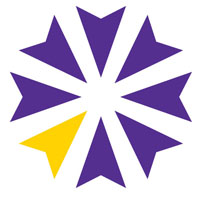
View Details / Enroll

View Details / Enroll
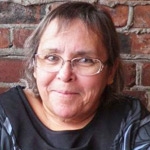
Resolving Ethical Dilemmas Using a Qualitative Study and Case Examples

Joy Noel-Weiss RN IBCLC is an assistant professor in the School of Nursing, Faculty of Health Sciences, University of Ottawa. Dr. Noel-Weiss researches breastfeeding and human lactation. Professor Noel-Weiss' doctoral research study was titled Relationship Between Intravenous Fluids Given to Women During Parturition and Their Breastfed Newborns' Weight Loss. Her Masters' research was a randomized controlled trial testing a prenatal breastfeeding workshop designed to increase maternal breastfeeding self-efficacy. For future research, Dr. Noel-Weiss is developing tools to measure infant feeding patterns and to measure clinicians' confidence in their ability (i.e., their self-efficacy) to support individuals who choose to breastfeed.
In addition to these quantitative studies, Dr. Noel-Weiss recently completed qualitative research about ethical dilemmas and lactation consultants and about mothers' experiences using baby scales in their homes. Currently, Dr. Noel-Weiss works with a research team as the principal investigator on a research study titled Transmasculine Individuals' Experiences with Pregnancy, Birthing and Feeding Their Newborns. The study is funded with an operating grant from the Canadian Institutes of Health Research - Institute of Gender and Health.
Dr. Noel-Weiss chairs the International Lactation Consultants Association's Ethics and International Code Committee and co-chairs the uOttawa School of Nursing's working group for joint appointees and adjuncts. She has a cross appointment to the Ottawa Hospital and is a member of The Ottawa Hospital Nursing Research Work Group. Recently, Dr. Noel-Weiss became a member of the Champlain Maternal Newborn Regional Program's Breastfeeding Promotion Committee.
In this session, Professor Noel-Weiss explains and defines bioethics, principles of bioethics, and ethical dilemmas. She presents results from her research study about IBCLCs and ethical dilemmas and uses case studies to demonstrate how to identify and resolve ethical dilemmas.
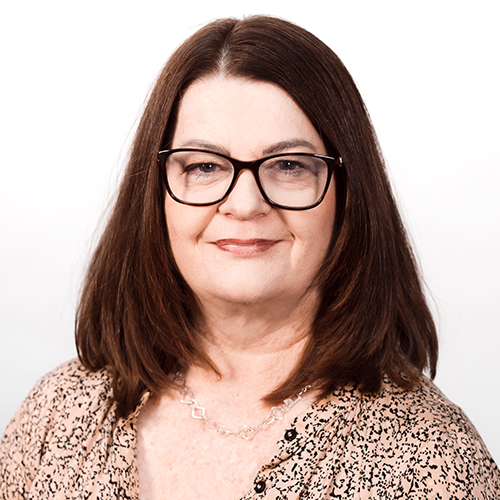
Responsive Breastfeeding: The Key to Optimal Infant Development

Martina Donaghy is a registered midwife of 30 years, an IBCLC of 22 years and a Senior Midwifery Lecturer of 17 years’ experience. During the past two decades her main posts as a hospital based Infant Feeding Specialist and a Midwifery Lecturer has seen a focus on educating registered midwives, student nurses, midwives, paediatric and Specialist Community Public Health nurses on the importance of breastmilk and breastfeeding, ensuring these students are equipped to support the breastfeeding mother in achieving her feeding goals. Martina has led and supported her university to achieve successful UNICEF UK Baby Friendly accreditation for the BSc Midwifery and Specialist Community Public Health Nursing programmes. She also teaches on the Midwifery Master’s program specialising in the promotion and support of physiological birth, breastfeeding, biological nurturing, and maternal, infant attachment. Recent publications include a chapter in Examination of the newborn and neonatal health, titled Helping parents make decisions regards to infant feeding and cosleeping. Her most recent midwifery article focused on supporting maternal and infant physiology after birth. She is originally from Australia and has resided in the United Kingdom for 30 plus years.
From the moment of conception, maternal and fetal physiology is intrinsically linked in a synergistic partnership, with optimal infant development dependent on this relationship continuing well into the infants first 1001 days. A key pivotal facet of this reciprocal relationship is responsive breastfeeding. Responsive breastfeeding is far more than a way of infant feeding, but a sensitive synchronous parenting style that secures optimal growth, nutrition, immune development, infant /maternal attachment, whilst fostering successful lactation and the development of positive feeding habits well into infancy. This presentation will explain what is meant by responsive breastfeeding, exploring the science behind how this type of feeding promotes optimal infant health.
The presentation will conclude with an exploration of the wider benefits of responsive breastfeeding, examining the possibility of this type of feeding style contributing to improving several public health issues, in particular childhood aversity and obesity. Lastly, recommendations for promotion and support of responsive breastfeeding will be outlined.
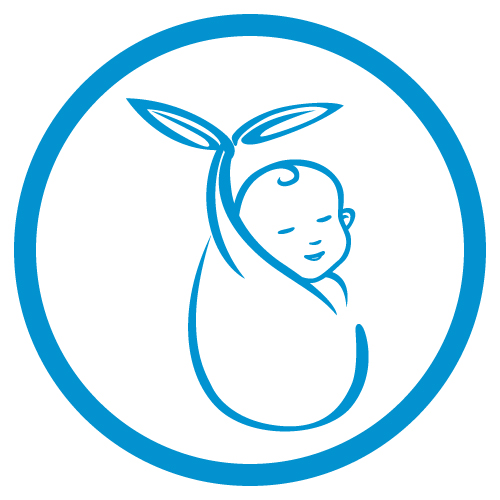
View Details / Enroll

Rethinking the Definition of Breast/Chestfeeding: Where Does Pumping Fit In?

Nichelle Clark is an International Board Certified Lactation Consultant (IBCLC), wife, and mother of one residing in Chesapeake, Virginia. She is the owner of SonShine & Rainbows Lactation Services. Born and raised in Upper Marlboro, MD, Nichelle joined the United States Navy in 2010 and served honorably for 7.5 years. In 2020, she founded Black Breastfeeding 365, an organization that seeks to bridge the gap between Black Parents and the Lactation Professionals who serve them. When she’s not spending time with her husband and 4 year old son, she serves as a United States Lactation Consultant Association (USLCA) Advisory Board Member and Clinical Lactation Journal Social Media Editor. In her spare time, she admins multiple online support groups for People of Color, providing breastfeeding support and lactation education to her community. As an exclusive pumping mom herself, Nichelle is a champion for breastfeeding parents to write their own rules and breastfeed their way.
The first breast pump is credited to being invented/patented in 1854 by O. H. Needham. Since then, the pump industry has exploded, making breast pumps more accessible throughout the Western World. While technology has transitioned with the times, the bias that exists within lactation has not. Clinicians are still drawing hard lines on what the “true” definition of breast/chestfeeding is. In this presentation, we’ll dive into why there’s still a debate and answer the age-old question. Spoiler alert: Pumping is breastfeeding and lactation professionals have a responsibility to support parents to meet their pumping goals.
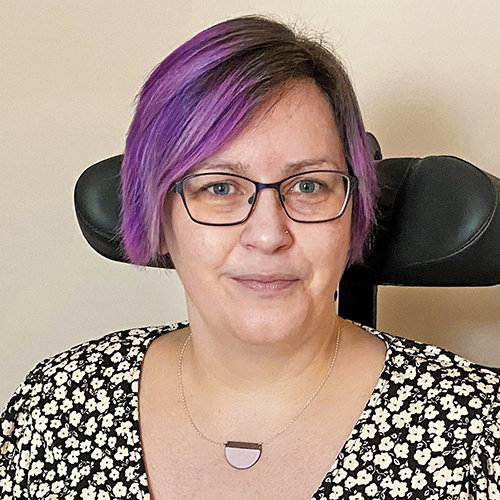
Reviewing the Research on Breastfeeding in Public: Challenges, Solutions and Impact

Aimee Grant is a Senior Lecturer and Wellcome Trust Career Development Fellow at Swansea University Centre for Lactation, Infant Feeding and Translation. She has researched marginalised pregnancy and early motherhood for the past decade, including those living in poverty, stigmatised locations and Disabled women. Aimee's current research is an 8 year longitudinal study using visual methods to understand Autistic experiences "from menstruation to menopause". She is the author of two Documentary Analysis texts (Routledge, 2019; Policy Press, 2022), and is currently writing The Autism Friendly Guide to Pregnancy (and the fourth trimester).
Many parents in Global North countries identify breastfeeding outside of the home as a particular challenge, and this can lead to stopping breastfeeding earlier than intended. However, there are often legal protections available. In order to better understand this complicated landscape, I will present a summary of the 71 research studies published on this between 2007-2021. Current barriers to mothers being able to breastfeed in public spaces will be described in relation to the legal system, structural inequality and intersectionality, knowledge leading to incorrect beliefs among the public, and a hostile social environment. Within this context it is completely rational for parents to feel a range of negative responses, which lead to them feeling unsafe to breastfeed. Building on this evidence, I present a range of ways in which you may be able to have a positive impact on the environment around the mothers you support.


Bryna is a lactation consultant, mentor, educator, and birth doula in the Pacific Northwestern United States. They are active in their community as an advocate for mutual aid, reproductive justice, and reduction in barriers to care. They also own and manage an inclusive private practice. As a member of both Queer and Neurodivergent communities, offering inclusive care on every level is very important to Bryna. Their vision is to offer information and tools to providers to build a community of comprehensive, concordant, and individualized care for all families in the perinatal period.
Topic: Breastfeeding With Ease: The Impact of Infant Reflex Emergence and Integration - [View Abstract]
Topic: Rhythmic Movement for Breastfeeding Function - [View Abstract]
Disorganized or absent infant reflexes can create challenges for breastfeeding/chestfeeding. This presentation takes a close look at the role of movement in the integration of disorganized infant reflexes and the use of rhythmic movement as a method for overcoming infant feeding challenges. This talk also covers socio-cultural impacts of trauma, lack of opportunity for movement, and modern care system barriers to reflex integration.

View Details / Enroll
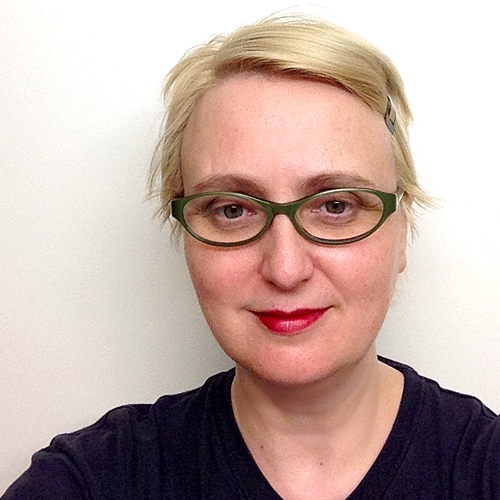
Rummaging in the Tool Bag: Examples of Approaches Borrowed from Other Disciplines, Applied in Lactation Support Practice

After working in the UK and France, lecturing and then in film and TV production, Annabelle became a breastfeeding support volunteer in France 10 years ago, after the birth of her first child. She then worked in lactation support in the UK NHS in London, whilst also volunteering for the National Childbirth Trust (NCT). Since 2016, she was the Infant Feeding Coordinator at Suffolk County Council Health and Children’s Centres, and had a small private practice. In her county council role, Annabelle took the Health and Children’s Centre staff through Stage 1 of UNICEF Baby Friendly Accreditation, and left the department well prepared for Stage 2. Whilst there, she oversaw an increase in breastfeeding rates, and contributed to Public Health initiatives to promote breastfeeding, including help to improve breastfeeding knowledge amongst doctors. Annabelle qualified as an IBCLC, lactation consultant in 2017. In October 2018, Annabelle took up her current post as lactation consultant for the 48th medical group at RAF/USAF Lakenheath.
Rummaging in the tool bag: how we can borrow from other disciplines, and enhance our care.
As infant feeding specialists, we should be open to discovering new tools that renew our practice. Historically, we’ve incorporated elements from elsewhere, e.g. Active Listening (Rogers and Farson, 1957), borrowed from psychology and conflict resolution.
Changes to the UK support landscape, mean that parents may not access traditional breastfeeding peer support, and instead see health staff. A diversity of background, can mean staff bring additional skills that then complement those acquired under the UNICEF Baby Friendly standard.
For specialist professionals, such as IBCLCs, some of these tools can also complement practice, and can be used to great effect.
This presentation proposes to look at some elements we can borrow that enhance our clinical practice. We will review aspects of Active Listening, and then move on to examine elements in the Signs of Safety model and Solihull Approach. These are just two examples of widely practiced approaches in the UK, and there are many other fields to be borrowed from.

View Details / Enroll

View Details / Enroll
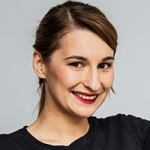
Rusty Pipe Syndrome: A Case Report From Poland

Anna has been working as a midwife since 2009. From the very beginning of her studies she has been fascinated with breastfeeding. During her studies for her Bachelor's and Master's degrees in Midwifery, her main area of interest was promotion and support for breastfeeding among women. Anna's interest in breastfeeding turned into a passion that led her to pursue the Polish Certification of Lactation Consultant and she is working toward certification as an IBCLC. She opened a private practice and a support group for local women in Krakow (cracko). Anna’s Interest and passion for lactation and breastfeeding have deepened during her current PhD studies. She is a PhD candidate in 2018 at University Medical College and is the coordinator of the Krakow Human Milk Bank.
Her scientific area of expertise: change in milk composition (macronutrients), human microbiota during pregnancy, lactation as well as tandem breastfeeding. Her research is carried out in the Department of Obstetrics and Perinatology. Anna is the author of many lectures and workshops for students of midwifery and medicine in area of breastfeeding, lactation and the variation of composition of human milk. Since 2016 she has been popularizing the science of human lactation in Poland and she is always finding new ways to promote and support breastfeeding women. In her spare time she practices meditation, yin yoga and is learning how to dance rock and roll.
Topic: Rusty Pipe Syndrome: A Case Report From Poland - [View Abstract]
Bloody nipple discharge is an unusual experience during lactation for both the mother and her attending physicians. Painless bleeding from the breasts in the early post-partum period can be a physiological condition called a rusty pipe syndrome. This report describes the case of bilateral bloody nipple discharge that started after caesarean section and subsequently ceased within a few days.
Natural breastfeeding is the best way of nourishing newborns and infants. The process of breast milk production starts as early as between weeks 16 and 22 of pregnancy and colostrum can appear from the nipple in the following weeks. Milk containing blood can be a cause of concern for the mother and her physician. The reasons can be various; however not all of them would be caused by bleeding from the glandular tissue.

View Details / Enroll
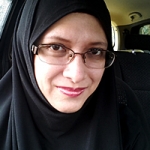
Scaling Up Skills and Reliability of Breastfeeding Peer Counselors - 7 Years of Malaysian Experience

Nadrah Arfizah Arifin (MBBS, MPH, IBCLC) is a medical professional in public health and a lactation consultant who obtained her medical degree from University of Malaya, Kuala Lumpur in 2004. Her involvement in breastfeeding support and advocacy started in 2007 as a local breastfeeding supporter at her workplace. She further involved in community-based breastfeeding support voluntarily by joining the Malaysian Breastfeeding Peer Counselor Association (MBfPCA) in 2010. She became the first breastfeeding peer counsellor of MBfPCA who successfully upgraded to become the program trainer in 2011 to 2012, thus making the framework for Train of Trainer program in MBfPCA in effort to further grow the network. She is currently the President of MBfPCA and together with other Core Trainers, they plan for sustainability of breastfeeding support by peer counsellors for Malaysian community. While doing her Doctoral degree in Public Health (DrPH), she is also working on few projects in MBfPCA particularly in capacity building of breastfeeding peer counselors with the interest of maintaining its integrity, reliability and relevancy through monitoring and evaluation of community breastfeeding support program.
The roles of peer counselors (PC) in breastfeeding support is important to reach mothers and families in community as they would bridge the gaps within the warm chain of breastfeeding support. However, challenges has overcome in many forms, especially their reliability in providing breastfeeding support skills and knowledge. Malaysian Breastfeeding Peer Counselors (MBfPC) program has started in 2010 to enhance breastfeeding support for Malaysian community. Its training syllabus were adapted and modulated to be culturally acceptable. More than 500 PCs were trained.
The original syllabus was continuously being revised prior to each training since Malaysia is multicultural with great diversity, with few adaptations of new tools to enhance the understanding among the trainees whom majority are not health personnel. MBfPC Association (MBfPCA) is responsible to reliability queries by other parties, thus overseen the needs for MBfPC training reform. Three training levels were introduced in 2016; entrance, advanced, and train-of-trainers; to increase reliability of certified PC, even though the sustainability of the network is yet to be observed. The mechanisms used to select, train and certify the PCs had strengthened the roles and functional relevancy of MBfPCA existence in Malaysian scenario. This presentation will share the challenges and framework of capacity building among PCs to function as breastfeeding peer supporters in Malaysian context.

View Details / Enroll



